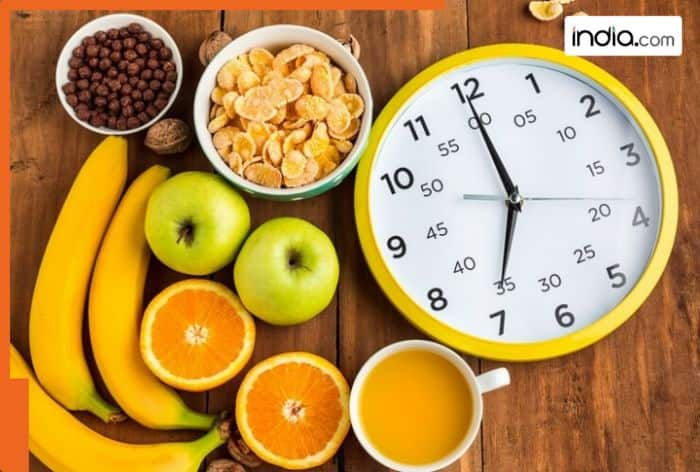Intermittent fasting is one of fitness trends that is still around. But when you eat between long duration, it is essential to be mindful of what to eat and what to avoid.

Intermittent fasting (IF) has gained popularity as an effective approach to weight management and overall health. It is one of the health trends that has stuck, and also delivered results when executed in the right manner. Intermittent fasting focuses on the time of consumption of food. When people speak about IF, it is about the window for eating. But how many actually lay emphasis on what is being consumed? It is essential to equally pay attention to the quality of food, nutrient profile etc for optimal results. Here is a list of things that one may eat or avoid when hopped on the IF wagon.
During intermittent fasting, it is imperative to be careful about the protein, fibre intake. Due to long gaps for meal timing, the body needs to fulfil any voids thus created.
5 Foods to Eat during intermittent fasting
- Whole Foods: Prioritise whole, unprocessed foods such as fruits, vegetables, whole grains, lean proteins, and healthy fats. These foods are nutrient-dense, providing essential vitamins and minerals that support overall health. For example, leafy greens like spinach and kale are rich in nutrients and low in calories, making them excellent choices for meals during your eating window.
- Lean Proteins: Foods high in protein, such as chicken, turkey, fish, eggs, and legumes, can help keep you satiated longer. Protein not only aids in muscle preservation during weight loss but also has a thermogenic effect, meaning your body burns more calories digesting it. Including protein in your meals can help curb hunger during fasting periods.
- Healthy Fats: Incorporating sources of healthy fats, like avocados, nuts, seeds, and olive oil, can provide sustained energy and promote feelings of fullness. These fats are beneficial for heart health and can help balance blood sugar levels. A small handful of nuts or a slice of avocado can make a satisfying snack or addition to meals.
- Complex Carbohydrates: Opt for complex carbohydrates, such as quinoa, brown rice, and sweet potatoes. These foods have a lower glycemic index, providing a steady release of energy and preventing spikes in blood sugar levels. Including fiber-rich carbohydrates can also aid digestion and promote a feeling of fullness.
- Hydrating Foods: Staying hydrated is crucial during intermittent fasting. Foods with high water content, such as cucumbers, watermelon, and oranges, can help keep you hydrated while providing essential nutrients. Herbal teas and infused water can also be excellent options to maintain hydration.
5 Foods to avoid during intermittent fasting
- Sugary Snacks and Beverages: Avoid foods high in added sugars, such as candies, pastries, and sugary drinks. These can lead to rapid spikes and crashes in blood sugar, increasing hunger and cravings during fasting periods. Instead, opt for naturally sweet foods like fruits.
- Processed Foods: Highly processed foods, including chips, fast food, and ready-to-eat meals, often contain unhealthy fats, added sugars, and preservatives. These foods can be low in nutrients and high in calories, making it easier to overeat and counterproductive to weight loss goals.
- Refined Carbohydrates: Foods made with white flour, such as white bread, pasta, and pastries, should be limited. Refined carbs can cause quick spikes in blood sugar, leading to increased hunger and cravings.
- High-Calorie Condiments: Many condiments, like mayonnaise and sugary sauces, can add unnecessary calories to meals. Opt for healthier options like mustard, salsa, or homemade dressings with olive oil and vinegar.
- Alcohol: While moderate consumption may be acceptable for some, alcohol can lead to increased hunger and poor food choices. It can also disrupt sleep patterns and overall health, making it best to limit or avoid during fasting periods.
Intermittent fasting can be an effective strategy for weight management and improved health, but the foods you choose to eat during your eating windows play a significant role in its success. However, always be mindful of the diet as it may have different impact on different people.


